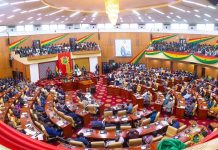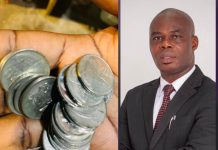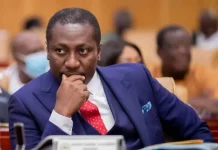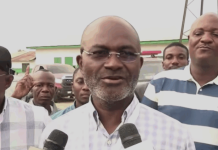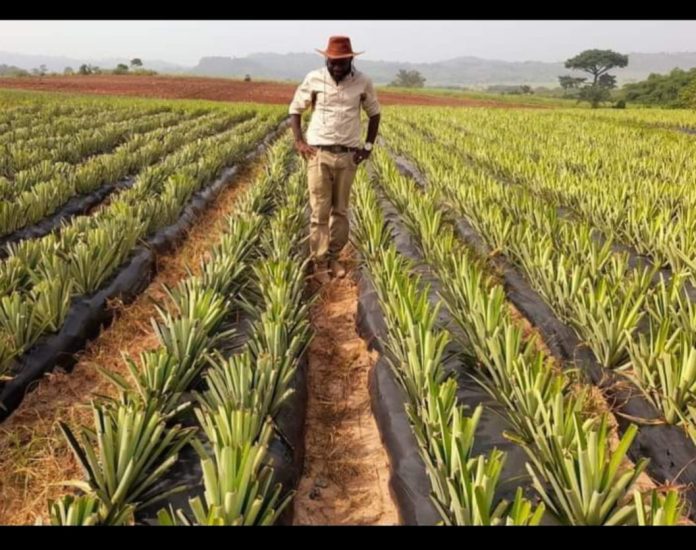As a pineapple farmer, I am concerned about the state of the agro-industry. On the quiet side, we are actively fighting for control over our farmlands. If the government is not helping, then there come the elites, who frustrate efforts to stop foreign illegal miners. Double Jeopardy as a nation. We urgently need an Independent Corrupt Practices Commission to address the issue of illegal mining. The increasingly worrying trend of illegal mining tells me elites in the country are frustrating the efforts of security agencies to arrest illegal miners.
We must collaborate with all stakeholders to address this issue. The politicians are the worst culprits and should not be included in this fight. NDC and the NPP. The country must address this issue holistically, without relying on presidential commissions or other similar mechanisms. Independent bodies must be set up. It’s true that chiefs and politicians failed us in this fight. The youth are furious, demanding an immediate halt to the pollution of our water bodies. According to research, politicians serve as sponsors. The Chinese have taken over. And as elections approach in a few months, they might sponsor the youth with arms to fight for their cause. Let’s be careful as a nation. Every year, the country loses billions of cedis to illegal mining. We have proof of the elites and politicians’ involvement.
When illegal miners, particularly those from China, are apprehended, they often cause damage to the country’s water bodies. Our water bodies suffer from pollution and poisoning. They have connections, support, and backing from higher offices. Occasionally, when you entrust these individuals to the next phase, their heartbreaking release occurs. If not for politics and the big boys’ game, there must be tough sanctions for those involved in this criminal act. We must deal decisively with anyone caught in this illegal mining, and publicize examples for others to follow. Another aspect that I have observed is the prevalence of poverty. The people living in these areas where illegal mining occurs are impoverished.
Virtually, lack of education is also part of it. Most of the individuals we encounter lack any formal education. Currently, illegal mining is a growing socio-economic challenge in Ghana, resulting in ecosystem loss and increased poverty levels, particularly among peasant farmers. This is a very troubling issue, especially because our river bodies are polluted. And it’s very critical is the fact that various mining communities in Ghana live in agonizing conditions, economically and socially, arising from years of neglect and various deprivations and severe environmental degradation and air and water pollution arising from unsafe mining practices by illegal miners. The impact of the unprecedented illegal mining across Ghana has been devastating, as farmlands, crops, and economic trees are not only destroyed by mining activities but reduce their benefit and value to the residents. Over the years, illegal miners worked against the country’s economy, preventing it from making the most of its mineral resources.
As citizens of this country, we must be deeply worried about the loss of revenue through unregulated and illicit mining operations. Each year, illicit mining costs the country billions of cedis, with the few licensed miners’ three percent royalty serving as the only source of income. The unregulated exploitation of our natural resources jeopardizes the sustainability of the mineral sector, leading to environmental degradation and revenue loss that could otherwise benefit our communities and nation as a whole. It is imperative that we take, as a matter of urgency, decisive steps and necessary action to address this issue and ensure that our solid mineral sector operates within the framework of the law, protecting our natural resources for future generations. A few days ago, I was amused to learn that Ghana’s President, Akufo-Addo, had established a 5-member ministerial ad hoc committee to evaluate the galamsey fight.
The government has established a five-member ministerial ad hoc committee to evaluate its ongoing efforts to combat illegal mining, also known as “galamsey.” The committee is tasked with reviewing the effectiveness of the measures implemented to address the environmental damage caused by illegal mining across the country. Comprising senior government officials, the committee will assess the current strategies and policies aimed at halting galamsey activities and recommend any necessary reforms to strengthen the government’s efforts. Examine the challenges faced by law enforcement agencies and local authorities in their fight against illegal mining. The committee is led by National Security Minister Albert Kan-Dapaah, Natural Resources Minister Samuel Abu Jinapor, Defense Minister Dominic Nitiwul, Employment Minister Ignatius Baffour Awuah, and Information Minister Fatima Abubakar as members. But who are we deceiving? This is not the first time the government has set up a committee to tackle illegal mining. The former Environment and Science Minister, Prof. Kwabena Frimpong Boateng, led the inter-ministerial task force against illegal mining, which ended dramatically, forcing him to resign his role as the Committee’s Chair.
The government’s most recent endeavor stems from mounting public pressure, as the destruction of rivers and forest reserves has led to health issues and a potential water crisis in the near future. All I ask is for the government to ban it immediately and stop. The government has paraded ad hoc committees with chairs. We know it’s a cover-up. Meanwhile, the government appears to be ignoring the issue of Sand Winning, which is causing significant damage to farms in the Eastern Region, particularly pineapple farms. In parts of the Eastern Region, indiscriminate sand winning has resurfaced, causing significant damage to pineapple farms and farmlands.
The aggression of the sandwinners poses a threat to sustainable pineapple production as farms along streams in the target areas are being consumed with or without the consent of farmers. The government is solely focused on “galamsey” and is allowing farmers to suffer. These illegal sand winners, who operate day and night, have conspired with some community leaders, including traditional authorities and family heads, to wreak havoc. The devastating illegal sand-winning activities are rife in large farm production areas in the Nsawam enclave, among other communities in the Eastern Region. The sand winners use excavators, while others resort to manual methods (pickaxe and shovel) to collect the sand from farmlands late at night. The destroyed farms have left behind scar-like ponds and similar structures. The strategy employed by the sand winners involves the destruction of farms. They hide behind supposed authorization from chiefs and family heads to bully farmers, as well as water down the demands during negotiations. Some farmers believe that farming, including pineapple production, is rapidly becoming difficult. But our duty is to sensitize the farmers to come together as one body to help ward off these sand winners and other human-induced anti-farm production activities.
The current state of farms has been negatively impacted by sand-winning. If the sand-winning in pineapple farms continues unabated, it could worsen the country’s pineapple production challenges, particularly as the country grapples with the cessation of illegal mining activities. Other worrying issues, such as climate change and disease infection, continue to wipe away hectares of farms in the country.
The author is Maxwell Okamafo Addo, a Champion for Economic Justice and Good Governance, Ecowas Elections Expert. He is a laborer, a senior journalist, a former organizer of the Presidential Press Corps in the Republic of Ghana, and a pineapple farmer.
He is a Democrat, a philanthropist, and a friend of the less privileged in society. She pays close attention to the suffering of humanity.






